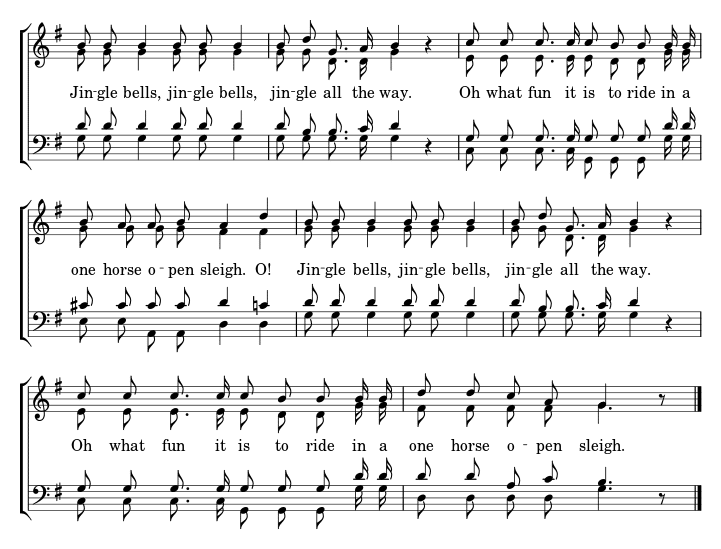Learning An Authentic Lesson From “Jingle Bells”

I have ruined Jingle Bells forever. I’ve got this crazy idea that the words sung should mean something to the singer. It would be nice if the words reflected the singer’s own experience. Can the singer authentically say, “Oh what fun it is to ride in a one horse open sleigh?” My feelings are not unique to this song. I get perturbed when children, mimicking adults, sing love songs. “I can’t live without you” just rings hollow when sung by a 10-year-old. So, when someone sings “Oh what fun it is to ride in a one horse open sleigh” when they’ve never actually ridden in a one horse open sleigh…in snow-covered fields…with ringing bobtail bells…laughing and singing, I wonder how authentic they are being. See, I’ve ruined it. (I know the song is a generic tale of wintertime frolic, but play along with my over-analytical ways. OK?)
[featured-image single_newwindow=”false”]According to Wikopedia, “Jingle Bells” is one of the best-known and commonly sung American wintertime songs in the world. It was written by James Lord Pierpont(1822–1893) and published under the title “One Horse Open Sleigh” in the autumn of 1857. Even though it is now associated with the Christmas and holiday season, it was actually originally written for American Thanksgiving. This is fun information. But, the point of this post is authenticity in communication.
Authenticity
The Merriam-Webster Dictionary defines “authentic” as real or genuine; not copied or false; true and accurate; made to be or look just like the original. Wow! There are so many applications to living and to Christian living.
Authenticity is hard to come by. We know it when we see it. But we’re so surrounded by inauthentic people and performances that we struggle to discern the real among the fake. We really want the authentic. People who simply quote Bible verses on Facebook don’t understand this. Do you actually live what you’re quoting? Does it matter to you? I know we’re all on a journey and can’t live Bible truth fully. So then, perhaps being silent is better than being inauthentic.
How about you? Do you long for authenticity? Do you long to be authentic? Is it a driving force in your life?
How?
- Acknowledge how inauthentic you are.
- Repent of being a performer.
- Release your need to “look good.”
- Recognize your shortcomings.
- Realize Christian authenticity only comes by participating in the life of Christ.
- Be silent before God and His word. Not everything you receive from God is to be passed on to others. It most often is only a message for you.
- Begin living it before talking it. Allow the truth to be a part of your life first. Authenticity demands that you back up your speech with a credible life.
Let’s strive to be authentic in all things.
Share below your struggles with being authentic.
Merry Christmas and “jingle all the way!”
Dr. K
